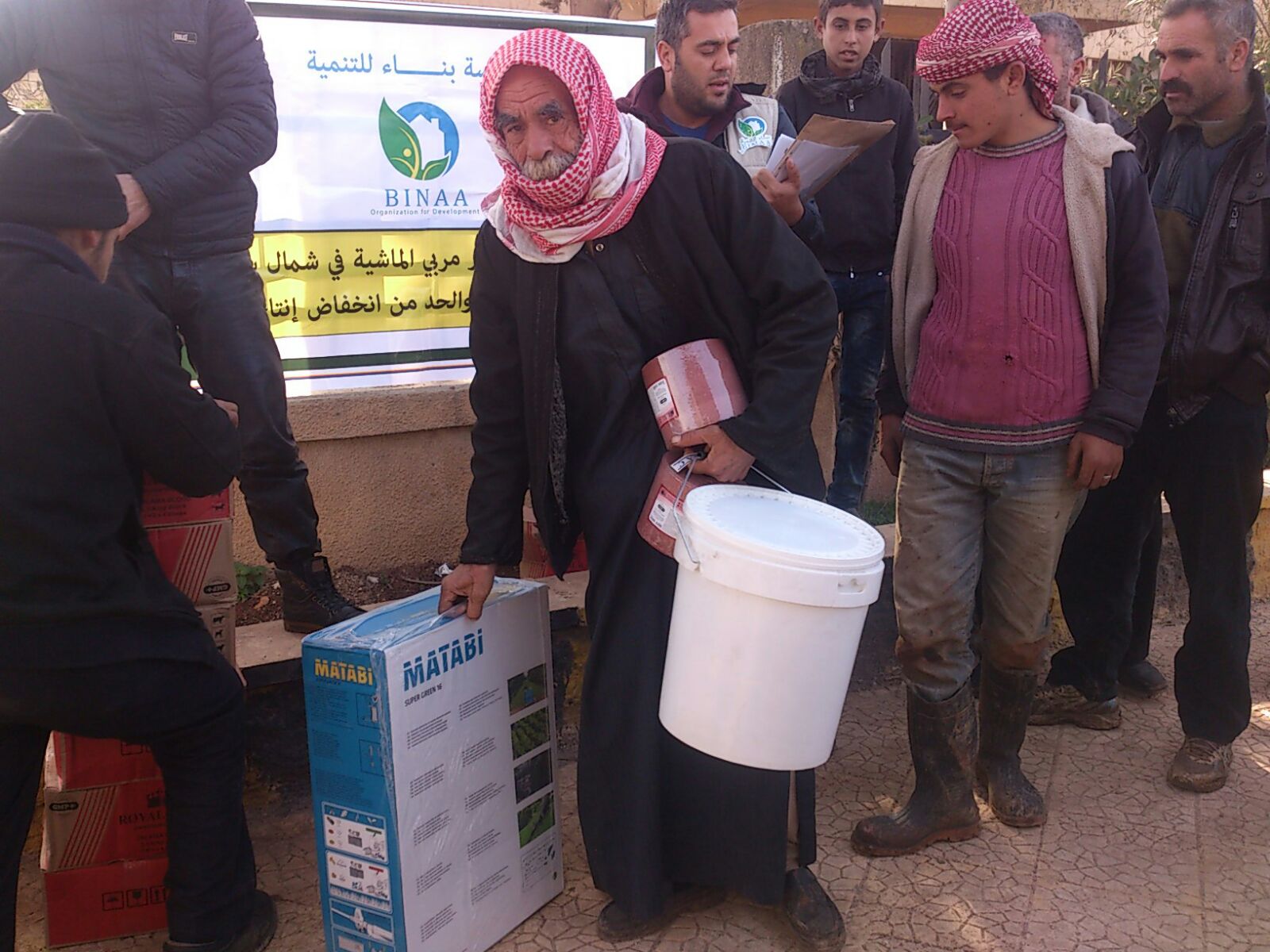Supporting Syria’s Livestock Sector

Abu Jawad had always relied on his income from sheep farming. But as the conflict in Syria took its toll, he was horrified to see his animals dying due to a lack of vaccinations and the rising costs of drugs and treatment.
“New diseases I didn’t know how to treat were spreading through my herd,” the 47 year-old told Damascus Bureau. “I felt helpless and thought the only solution would be to reduce the size of my flock.”
When Abu Jawad heard of a new project supporting livestock breeders in the Aleppo and Idlib countryside, he sought its help.
“The project is excellent. It has appointed specialist vets to treat our livestock, and it also provides us with animal feed,” he said. “This has helped me restore the health of my livestock, and sustain my source of income.”
The project is the brainchild of the Binaa Development organisation and was inaugurated on July 1, 2015.
Syria’s livestock sector, mainly made up sheep and poultry farming, was in crisis as the war entered its fourth year.
Mohammed al-Omar, a 50 year old engineer at the Idlib Free Agriculture Department, told Damascus Bureau that a sharp drop in production since the beginning of the revolution had pushed prices up. In response, the livestock market had all but collapsed.
He explained that production had reached its lowest levels by 2015, by which time the country had lost 50 per cent of its animal resources.
Livestock were killed during shelling, slaughtered to feed the residents of besieged areas or smuggled across borders for sale in neighbouring countries.
The Binaa initiative aims to re-establish production by focusing on the health and quality of the country’s remaining stock.

It was launched after a UN Food and Agriculture Organisation (FAO) study in northern Syria revealed the spread of parasites and serious diseases amongst livestock.
“Syria’s war has turned it from an exporter of livestock and animal produce to an importer,” Binaa project director Jamal al-Sulh told Damascus Bureau. “The neglect of the livestock breeding sector has caused great damage, which poses a threat to the food industry both now and in the future.
“The project recognises that this sector can be swiftly revived with the right measures,” the 45 year-old continued. “So it addresses problems such as shortages in fodder, veterinary drugs and vaccines.”
Local breeders are supported with veterinary supplies as well as information and vaccination guidelines.
Medical provisions include antibacterial sprays and drugs, disinfectants to clean barns, syringes, plastic gloves and wound disinfectants.
Breeders also receive food supplement tablets for their livestock, such as nutrients and mineral salt.
Each package costs 300 US dollars and is provided by the FAO. The project’s estimated cost is 850,000 dollars, and so far it has provided care to around 100,000 animals owned by 2,500 breeders from 65 different villages.
Akram al-Sawas, a livestock specialist at Binaa, explained how beneficiaries were selected.
“We asked local councils to advertise the project and invite local breeders who had between 20 and 100 heads of livestock, a barn and a limited income, to register interest,” he said.
“We then analysed the applications, taking factors such as family size, financial situation and number of children into consideration. Families with female breadwinners received priority,” the 35 year-old said.
Binaa then conducted inspection visits and issued a final list of recipients.
Umm Hamza, a 34 year-old widow with six children, was among them.
“I have been breeding sheep for a long time. However, during the past few years, my sheep have not been producing enough milk to cover the cost of breeding them. This is because pastures are polluted and so my flock is poorly fed,” she explained.
“Just when I was considering giving up breeding sheep, I was selected as a beneficiary. I was given drugs and animal feed, and I began to notice the milk my sheep produced increased.”
Director al-Sulh said the project was trying to expand in order to help the largest number of people possible, with the next stage targeting 3,500 families.
“We shall continue our work despite the shelling of some of the areas we operate in,” he said. “We will not spare any effort to serve the Syrian people who are struggling to fend for their children.”
Darin Hassan is the pseudonym of a Damascus Bureau contributor from Idlib countryside, Syria.
Read the Arabic version of this article here
